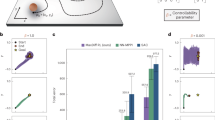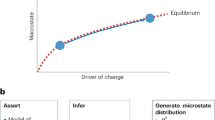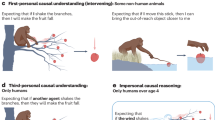Abstract
LUDWIG BOLTZMANN was born in Vienna in 1844. Of the Austrian tetrad of brilliant physicists (Loschmidt, Stefan, Mach, Boltzmann) he duly gained widest fame. I could begin by telling of the splendid, at that time daring, proof he gave of the fundamental law of radiation, by imagining a pintful of nothing to undergo a sequence of compressions and dilatations—a so-called Carnot cycle. I could tell of his grinding a crystal of sulphur to the shape of a neat marble, that was to serve him in an experimental confirmation of Maxwell's theory of electricity, of which he was one of the foremost champions on the Continent. But to indicate what he really meant to the development of human thought, I must start from a wider basis.
This is a preview of subscription content, access via your institution
Access options
Subscribe to this journal
Receive 51 print issues and online access
$199.00 per year
only $3.90 per issue
Buy this article
- Purchase on Springer Link
- Instant access to full article PDF
Prices may be subject to local taxes which are calculated during checkout
Similar content being viewed by others
References
Boltzmann, L., "Populäre Sohriften" (Leipzig: J. A. Barth, 1905).
Author information
Authors and Affiliations
Rights and permissions
About this article
Cite this article
SCHRÖDINGER, E. The Statistical Law in Nature. Nature 153, 704–705 (1944). https://doi.org/10.1038/153704a0
Issue Date:
DOI: https://doi.org/10.1038/153704a0
This article is cited by
-
On a recent argument for the impossibility of a statistical explanation of single events, and a defence of a modified form of Hempel's theory of statistical explanation
Erkenntnis (1988)
-
The analytical foundations of climatology
Archiv für Meteorologie, Geophysik und Bioklimatologie Serie B (1970)
Comments
By submitting a comment you agree to abide by our Terms and Community Guidelines. If you find something abusive or that does not comply with our terms or guidelines please flag it as inappropriate.



